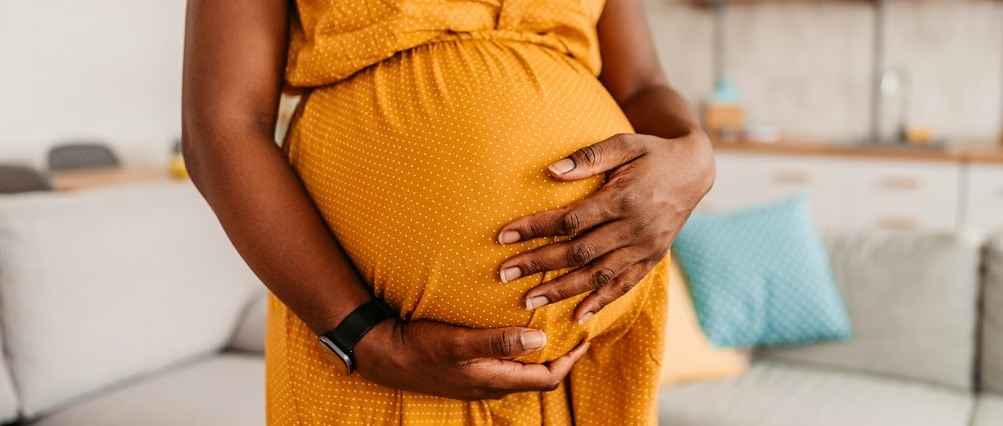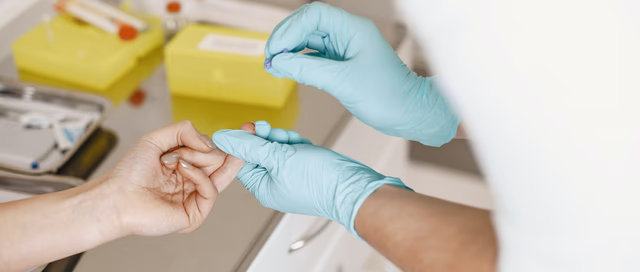
What is pre-eclampsia and how can it affect pregnant women?
Peer reviewed by Dr Krishna Vakharia, MRCGPLast updated by Lydia SmithLast updated 22 Sept 2023
Pre-eclampsia is a condition that affects blood pressure in pregnancy, but despite up to 6 out of every 100 women experiencing it, we still don’t know exactly what causes it1. To find out more, researchers have launched a major study examining why some women - and not others - develop pre-eclampsia and what it means for their long-term health. So what do we know about it so far?
In this article:
Continue reading below
What is pre-eclampsia?
Deirdre de Barra, head of pregnancy information at the pregnancy charity Tommy’s, explains that pre-eclampsia is a ‘hypertensive disorder’ - which combines raised blood pressure and often protein in the urine and problems with the kidneys or liver.
"These symptoms will not be obvious to you and you will not know if you have them. However, they are picked up in your routine appointments through the blood pressure checks and urine tests," she says.
"Pre-eclampsia usually affects women during the second half of pregnancy or soon after the baby is delivered."
Symptoms include swollen ankles, feet, face and hands, a severe headache or problems with vision. Around 6 in 100 people have a mild version of pre-eclampsia, but 2 in 100 have a severe form.
It can lead to serious complications for both mother and baby if not monitored or treated. “If pre-eclampsia is severe, it can start to affect other systems in the body - but these complications are rare,” says De Barra.
Patient picks for Pregnancy complications
What causes pre-eclampsia?
Despite pre-eclampsia being relatively common, we still don’t fully understand what causes the condition. It is thought to occur when there’s a problem with the placenta - an organ that develops in the uterus during pregnancy. The placenta moves oxygen, nutrients and antibodies from your blood to your baby, and pre-eclampsia may develop when the blood supply to the placenta is weaker.
However, a large-scale study called POPPY involving up to 3,500 first-time mums has just been launched to find out more about pre-eclampsia2. For the first time ever, women will be monitored before, during and after their pregnancy to see what factors might be influencing the health of their placenta.
Dr Bernadette Jenner, a medical registrar in obstetric medicine at Cambridge University Hospitals NHS Foundation Trust who is leading the POPPY study in Cambridge, said:
"This study is the first of its kind, monitoring thousands of women before they become pregnant for the first time and tracking them through their pregnancies to try and discover why some develop placental conditions and others don’t," she says.
"We also hope to find out whether or not these conditions trigger longer-term health issues such as heart disease and diabetes. Our lack of knowledge and understanding about placental conditions is really poor, especially when you consider how common they are, and the serious impact they can have on women and babies, which at times is life-threatening."
De Barra adds that like many pregnancy complications and broader ‘women’s health issues’, pre-eclampsia research has not seen the financial investment and attention it deserves. "However, our understanding of pre-eclampsia, how it develops and who is at highest risk has progressed in recent years," she explains.
"For example, as a result of the Tommy’s PARROT trial a quick, accurate, simple blood test is now available that can screen for pre-eclampsia risk3. It measures levels of a protein called placental growth factor. If you're between 20 weeks and 36 weeks and 6 days (36+6) pregnant, and your doctors think you may have pre-eclampsia, they may offer you this blood test to help rule out pre-eclampsia."
Continue reading below
Who is at higher risk of developing pre-eclampsia?
High blood pressure, diabetes, autoimmune conditions, age and being obese before pregnancy can increase the risk of pre-eclampsia and placental dysfunction, but it’s unclear exactly why and whether there are other causes. This is something the POPPY study aims to explore.
"Others who have a slightly raised risk include women and birthing people over 40, those with a higher BMI, those who are expecting more than one baby, those having a first pregnancy or a pregnancy when their last one was more than 10 years ago, and people with a family member who has had pre-eclampsia," says De Barra.
Can pre-eclampsia affect someone’s long-term health?
Having pre-eclampsia increases the risk of developing high blood pressure, heart disease and stroke in later life, and also raises the risk of having it again in a future pregnancy4.
But it’s not clear however whether placental complications cause heart disease and diabetes directly, or whether these conditions happen in women who already have underlying or unknown health issues before pregnancy.
"However, healthy lifestyle changes like avoiding smoking, exercising, eating a balanced diet and maintaining a healthy weight will help reduce this risk," De Barra says.
Continue reading below
How is pre-eclampsia treated?
Fleur Parker, senior practice coordinator at the National Childbirth Trust, says pre-eclampsia is usually resolved with the baby’s birth, although treatment doesn’t usually end straight away.
After being diagnosed, you’ll be assessed by a specialist and given the necessary treatment. If you have pre-eclampsia, you'll be closely monitored until it's possible to deliver the baby. You may be advised to have your baby at the 37th or 38th week of pregnancy, which may mean you need to be induced - have labour brought on artificially - or need to have a caesarean section. Delivering your baby early reduces the risk of complications from pre-eclampsia.
"After having your baby, a longer hospital stay may be required so your blood pressure can be monitored, and medication may be prescribed if necessary," she says. "People with pre-eclampsia are often home and recovering well after a couple of weeks in my experience."
If you’re worried about your health at any point during pregnancy - or if you’re concerned about any changes in your wellbeing - it’s essential to speak to your midwife or your doctor.
Further reading
Article History
The information on this page is written and peer reviewed by qualified clinicians.
22 Sept 2023 | Latest version
22 Sept 2023 | Originally published
Authored by:
Lydia Smith

Feeling unwell?
Assess your symptoms online for free

